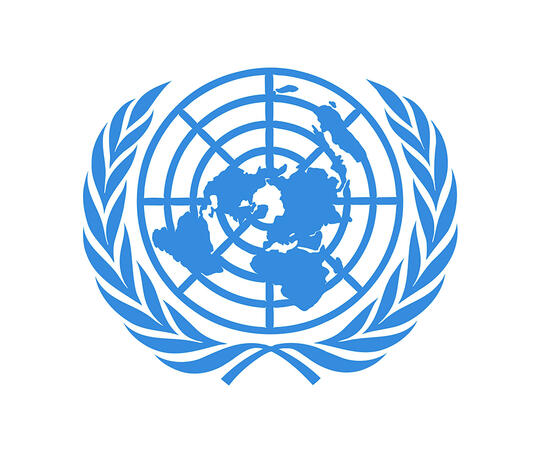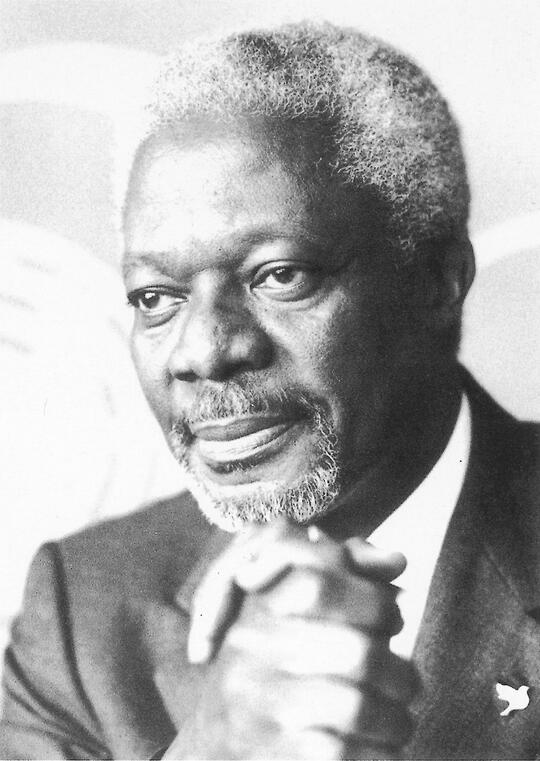2001
United Nations
Kofi Annan
for their work for a better organized and more peaceful world

United Nations
USA
Promoting multilateralism and safeguarding world peace
Support for organized cooperation between states and for the build-up of a global organization has been an important guideline for the Nobel Committee throughout its history. It therefore came as no surprise that the United Nations was favored on the occasion of the Peace Prize centenary in 2001, together with the organization's Secretary-General Kofi Annan. In previous years the Committee had agreed on a total of thirteen Laureates with connections with the United Nations. The United Nations Organization was planned by the allies, with the United States in the lead, during World War II, and in 1945 it replaced the League of Nations as a forum for safeguarding world peace. Disagreements between the great powers made it impossible to establish a supranational armed force under UN auspices that could be put into action against violators of the peace. In its early years the organization's efforts were concentrated instead on overcoming poverty and the promotion of economic and social development. Since 1970 the advancement of human rights has been an increasingly important United Nations concern.
Kofi Annan (1938 - 2018)
Ghana